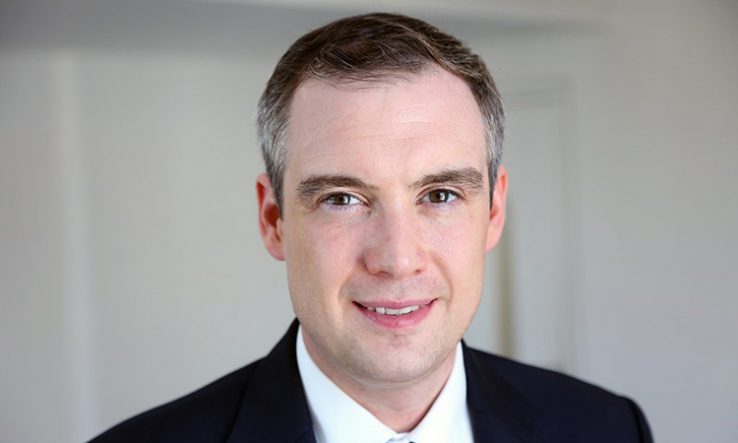
Research Professional News investigates whether higher education regulators need to spend more time on campuses
This is an extract from the Research Professional News 8am Playbook email. To enquire about subscribing to Playbook, please fill in this form and include 8am Playbook as the subject.
Conservative peer James Wharton has visited just five higher education institutions since he became chair of the Office for Students more than two years ago, Playbook can reveal this morning.
Last week, former chair Michael Barber spoke passionately in a House of Lords committee hearing about his time in the OfS role, at one point stating that he had visited “roughly 40” universities as chair—over a period of four years—and was a particularly frequent visitor in his earlier years in the job.
“We were constantly in dialogue…visiting universities and listening to what people were saying…trying to get the right combination of collaboration and dialogue with robust challenge,” Barber said.
Playbook was curious about whether Wharton (pictured), who succeeded Barber in February 2021, had taken a similar approach—particularly since, when he was appointed to the role, questions were asked about an apparent lack of close interaction with the higher education sector up to that point. We sent a freedom of information request to the regulator to find out.
A response came surprisingly promptly, confirming that between February 2021 and 10 March 2023, Wharton had visited five institutions in his capacity as OfS chair. There are currently more than 410 institutions registered with the regulator.
Playbook has contacted the OfS to request a response from both the regulator and Wharton.
It is fair to point out that both Wharton’s and Barber’s capacity to visit institutions will have been restricted to some extent by the Covid pandemic. However, it was in February 2021 that then prime minister Boris Johnson announced a roadmap for ending lockdown restrictions in England, with many university courses expected to reopen for in-person teaching by 8 March. All restrictions ended in July that year, so there really has been ample time for Wharton to hit the road and go on tour.
The news that Wharton has made it to just five campuses comes as something of a shock to Playbook, given that visiting universities is one of our favourite things to do—and anyone working in a job that facilitates such visits should be jumping at the chance. It is beyond doubt that witnessing the wonderful things that institutions do first-hand should be part and parcel of the job for anyone involved in their regulation.
At the time of his appointment, questions were raised by the Labour Party about whether the former Tory MP’s relationship with Johnson—he was campaign manager when Johnson ran for Conservative leader—and closeness to Gavin Williamson, who was education secretary at the time of Wharton’s appointment, should be looked at. Wharton’s appointment was confirmed following scrutiny by the Commons education committee, and the Department for Education and the OfS have stated that the appointment was fair.
Surely one way to answer any questions about Wharton’s level of higher education experience would have been to get out and about and visit as many providers as time would allow. That Wharton has set foot in just five institutions—averaging roughly one visit every 150 days of his tenure—is disappointing.
Out and about
Why, then, is visiting campuses so important for those of us working in higher education regulatory roles? We asked a few of higher education’s great and good.
“I would urge everyone working in our sector to get onto campus as often as possible,” said Nick Hillman, director of the Higher Education Policy Institute. “Our universities have researchers at the forefront of knowledge, managers wrestling with policy conundrums and students on the cusp of independent adult life. That is as interesting a mix as it is possible to get anywhere in modern Britain.”
Hillman’s colleague Rose Stephenson, Hepi’s director of policy and advocacy, added that since higher education providers “are working incredibly hard to comply and keep pace with OfS regulations, maintaining close working relationships between the OfS and colleagues on the coalface of implementation provides a two-way dialogue for sharing best practice and continuing improvement”. She is not wrong.
Chris Millward, who spent several years as director for fair access and participation at the OfS and is now professor of practice in education policy at the University of Birmingham, told Playbook that good regulation “relies on sufficient understanding and insight to judge how regulatory requirements influence behaviour across the sector”.
“This is important for board as well as executive members, as they should be scrutinising regulatory proposals and ensuring accountability for their effect in practice,” he added.
Perhaps there are signs at the OfS that it acknowledges the need to get out more. Writing in January, chief executive Susan Lapworth set out how the regulator hopes to “refresh our engagement with universities, colleges and other higher education providers”.
She said there would be “a series of scheduled visits to institutions for senior staff, with opportunities for interested OfS board members to join visits where appropriate”.
“We believe these visits—spread across the range of different institutions and across England—can help improve mutual understanding,” she wrote.
Playbook would hope that Wharton is planning to participate in as many of these visits as his diary will allow.